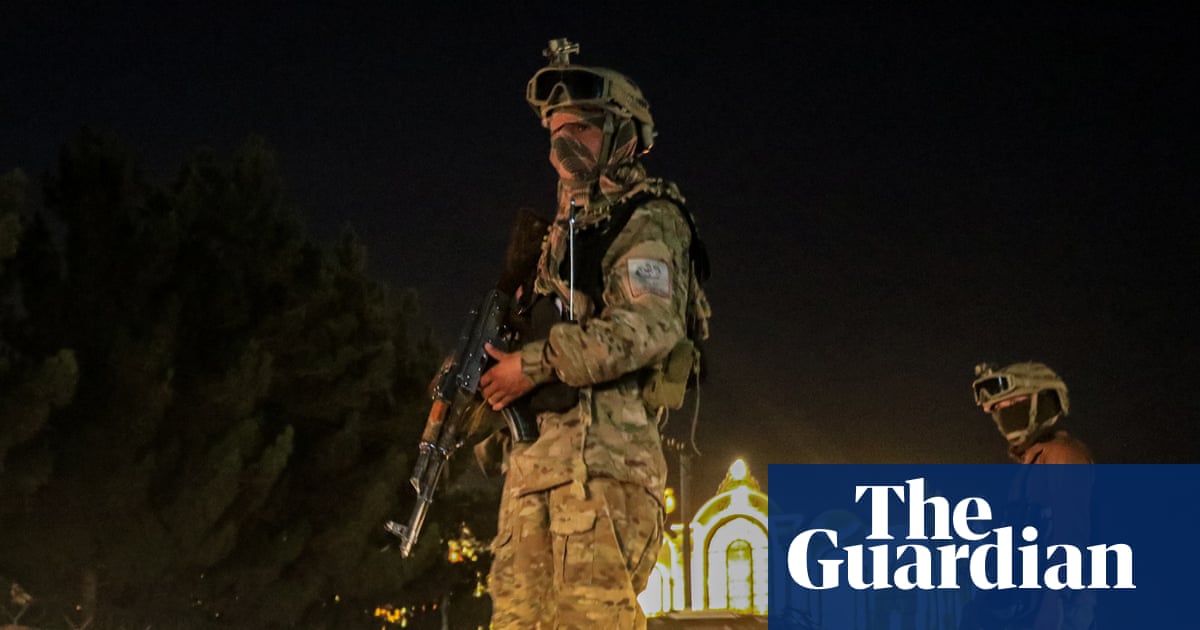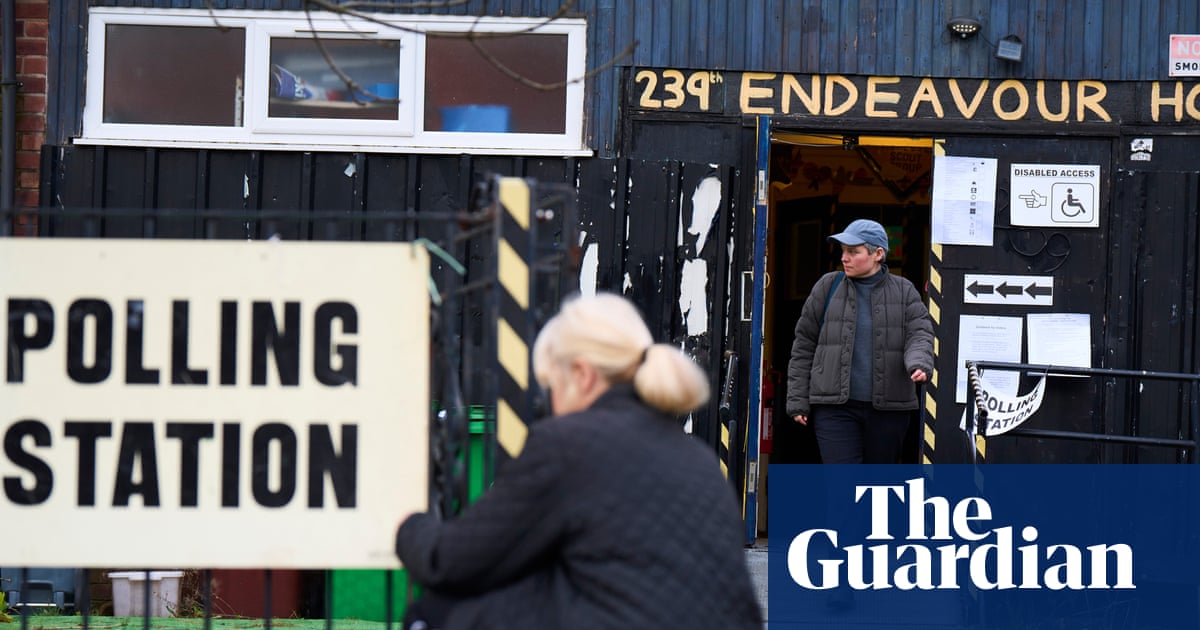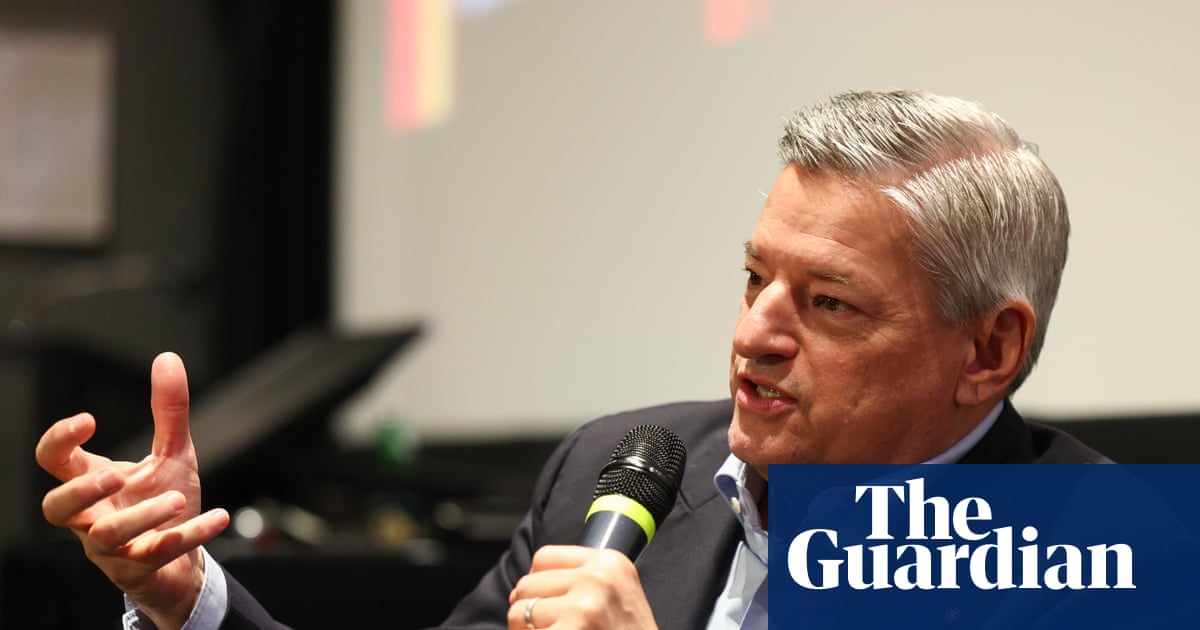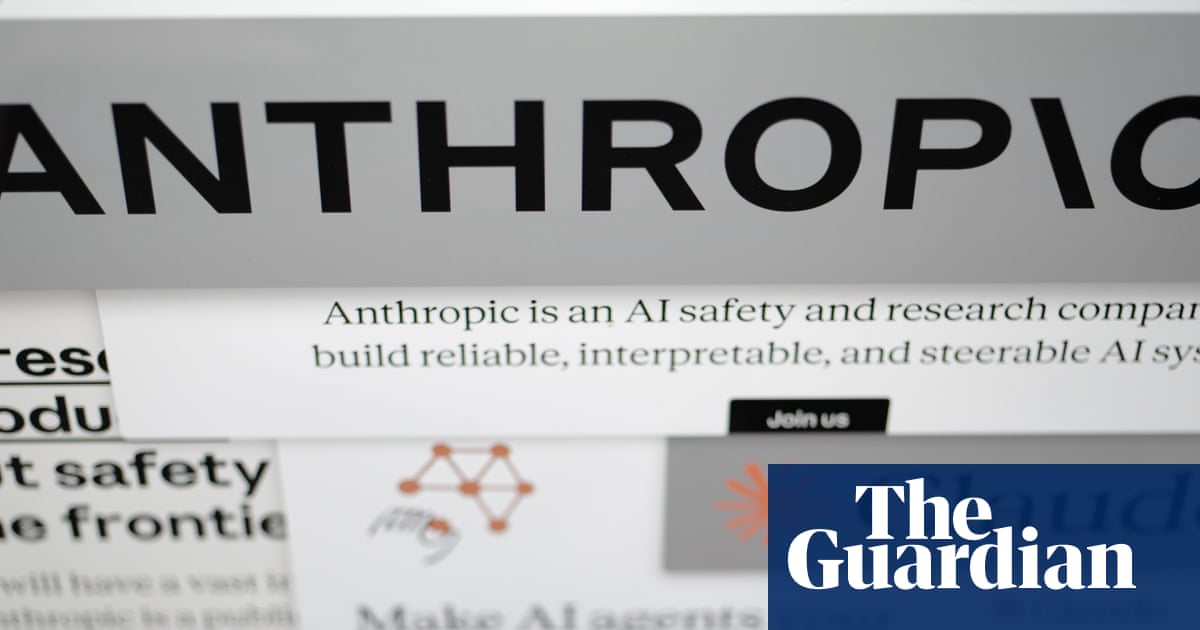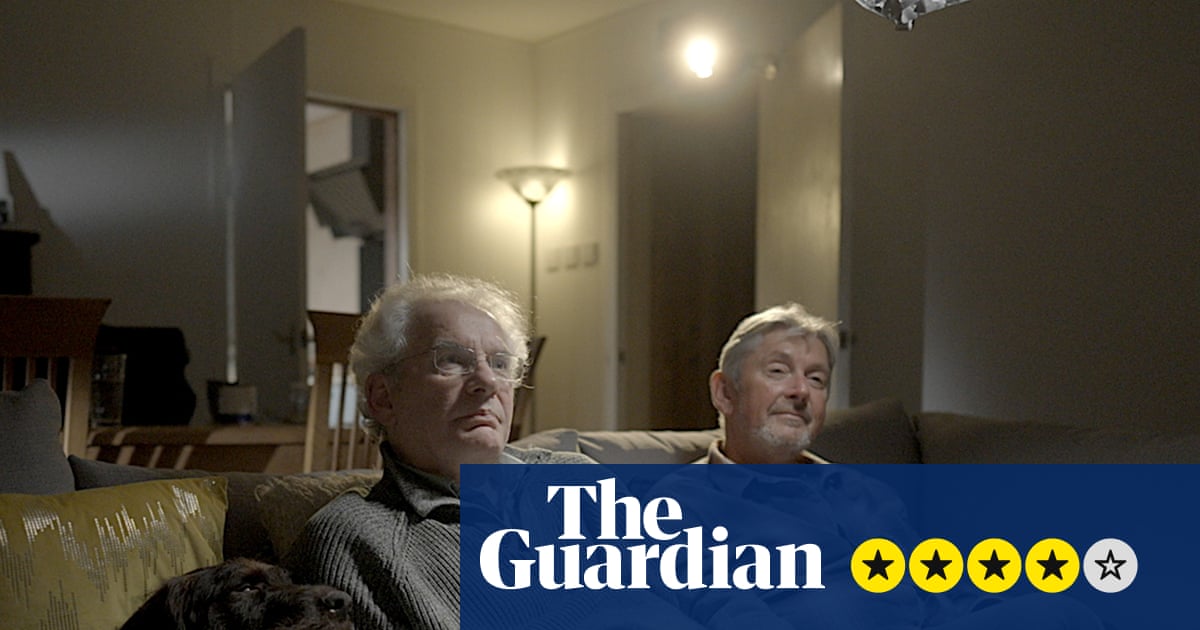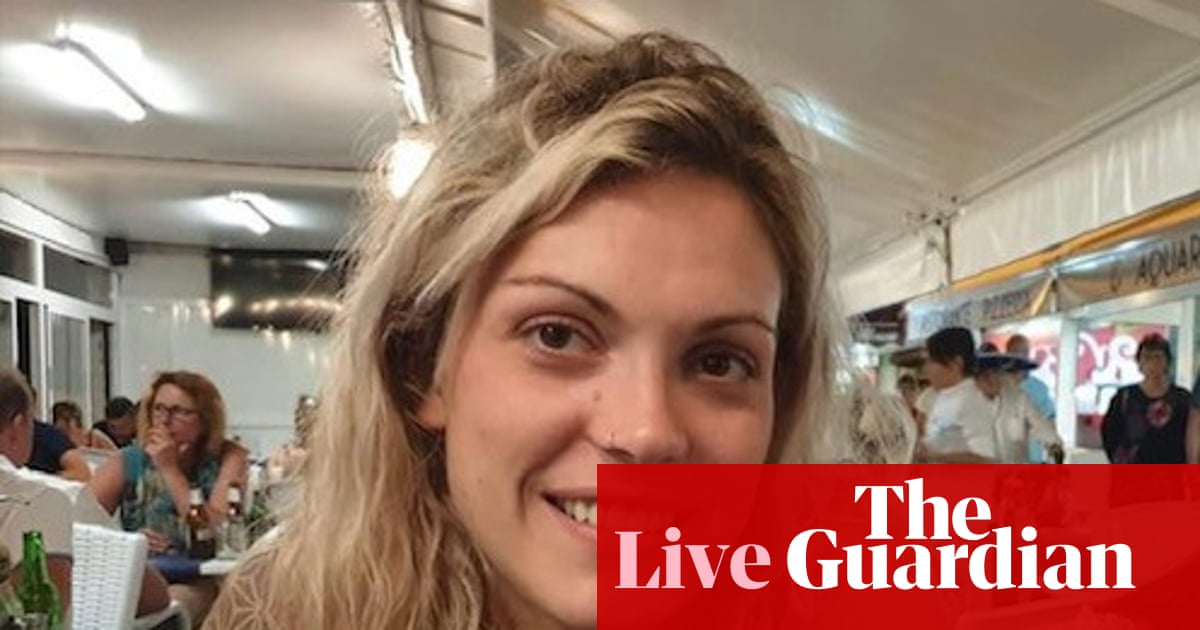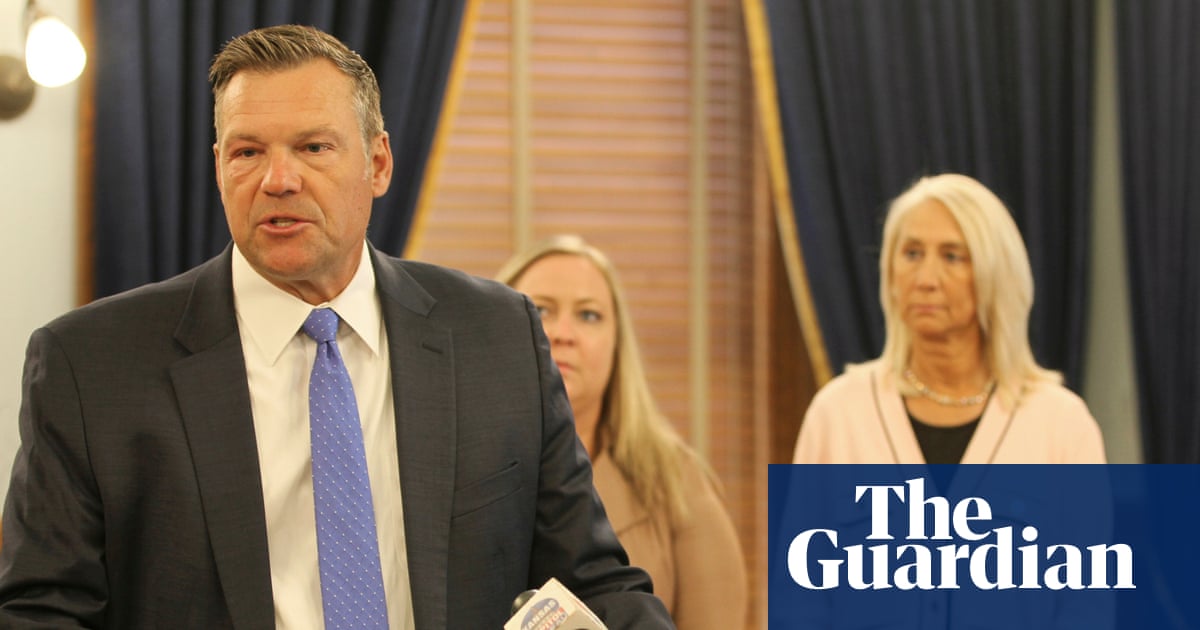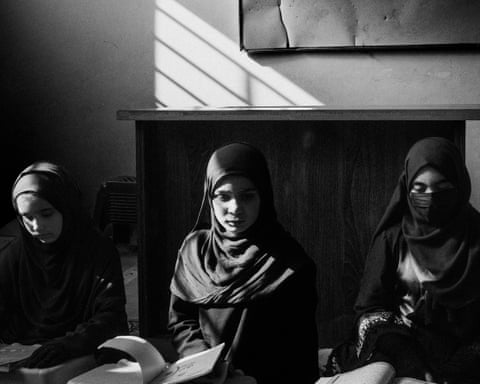
Between 2019 and 2023, as the Taliban returned to power, Lorenzo Tugnoli took photos of families and fighters in Afghanistan, hoping to show a side to the country not seen in the news
Students attend a class in a religious school, October 2022.Thu 30 Oct 2025 08.00 CET
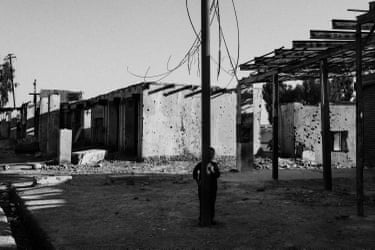
Sangin, Afghanistan, June 2022
The photographs in It Can Never Be the Same were taken by Lorenzo Tugnoli in Afghanistan between 2019 and 2023 – a pivotal time of transition and upheaval. Rather than traditional reportage, the images in the book form a reflective journey. Here we see the bazaar of Sangin, heavily damaged by fighting that ravaged this area during the years of US occupation. The full scope of the crimes and violations committed in these former frontline areas remains unclear. It Can Never Be the Same is available to purchase from GOST Books
Kabul, Afghanistan, February 2019
Shakila, 35, stands in her mud house surrounded by her children in the Hewad Wall informal settlement. Her husband is addicted to heroin, and she supports the family by begging in the city market. All of her daughters are already engaged, including seven-year-old Sabrina (seen on the right). Sabrina’s father engaged her to a friend to repay a debt of 100,000 afghani (around $1,520). After the engagement, half of the sum is paid to the family, while the other half will be paid once the girl reaches the appropriate age to be married
Nangarhar, Afghanistan, December 2019
Lorenzo Tugnoli: ‘In 2019, after the start of negotiations between the Taliban and the US government, we finally received the green light from Taliban commanders to visit territory under their control. This rare trip became possible because senior Taliban figures were eager to engage with the Americans. The visit was brief and tense. The Taliban fighters were curious to meet us, foreigners, in person. This fighter was among the first we encountered that morning, waiting a few hundred meters beyond the last government checkpoint, past the frontlines’
Wardak, Afghanistan, October 2021
Zalmay Adil, 16, collects money for the local madrassa along Highway 1 near his native village of Andar. The madrassa taught the youth about jihad, or holy war, and prepared them ideologically to join the Taliban and fight American forces and their Afghan allies.For the book, Tugnoli worked in collaboration with researcher Francesca Recchia to review his archive with fresh eyes and search for images that told a different story to that which appeared in the news
Kabul, Afghanistan, February 2019
Almost two-thirds of the Afghan population lived in areas directly affected by conflict and many families relocated to refugee camps. ‘There were so many layers – things happening behind the scenes that weren’t visible or easy to understand. And especially for us, as westerners, it was very easy to misinterpret what we were seeing. Am I fully grasping the events that unfold in front of me or am just trying to reproduce a certain kind of imagery? Am I looking and properly observing or am I emulating a movie that repeats itself on loop in my outsider’s head?’
Sangin, Afghanistan, June 2022
Tugnoli worked for the Washington Post during the peace negotiations, which were followed by the disintegration of the Afghan Republic and the Taliban’s return to power. Here we see patients and family members crowd the entrance of a clinic in Sangin. The clinic is in a dilapidated building whose construction was never completed. Sangin is a small town in Helmand province, in the south of the country, and was the scene of heavy fighting during the war. These rural areas are now safer than they were at the height of the conflict, but still endure extreme poverty
Kabul, Hewad Wall camp, February 2019
‘As I worked in Afghanistan for more than a decade, my photographs have contributed to its representation: the images that we see, the ones we do not and the way they are framed. With time, I have become more aware of the power and the limits of this representation. I have started reflecting on my role and position in this system and begun questioning the depth of my understanding of the facts’
Kabul, Afghanistan, October 2022
Students attend a class in a madrassa. Since the Taliban government banned girls from attending regular schools, an increasing number of girls are enrolling in madrassas or religious schools, where they memorise and learn to recite Islamic scriptures
Herat, Afghanistan, November 2022
A woman takes part in a land inheritance dispute against her brother in a Taliban court in Herat. Since the re-establishment of Afghanistan as an Islamic emirate in 2021, citizens have brought old cases to Taliban courts, which they consider less corrupt and more accessible. However, under the new system, defendants in criminal cases are not allowed legal representation, and women may only enter the courts if accompanied by a male relative
Kabul, Afghanistan, March 2020
Onlookers observe the site of an Islamic State attack that killed 32 people and wounded more than 80 in a Shia neighbourhood on 6 March 2020. The attack came just days after the signing of a peace deal between the US and the Taliban. IS opposed the peace efforts by the Taliban and continued to carry out terrorist attacks, mostly targeting ethnic Hazara and Shiite minorities
Kabul, Afghanistan, March 2019
A girl stands at the entrance of her family’s mud house in the Hussain Khail informal settlement. Her uncle and brother were killed in their compound during an airstrike on the village of Chardara. Survivors were trapped in the crossfire between the Taliban and the Afghan army for an entire day before being evacuated to Kabul during a lull in the fighting. The family never again returned to their house
Kabul, Afghanistan, October 2023
‘The area of Lake Qargha, outside Kabul, is a popular tourist destination for families during the weekend. The Taliban banned men and women from visiting amusement parks on the same day and, in some parts of the country, from dining out together. It is my hope that the book might be part of a more comprehensive discussion about how we perceive countries that endured occupation, the ethics of storytelling, and the lasting impacts of foreign interventions on nations like Afghanistan’Explore more on these topics

.png) 3 months ago
88
3 months ago
88

